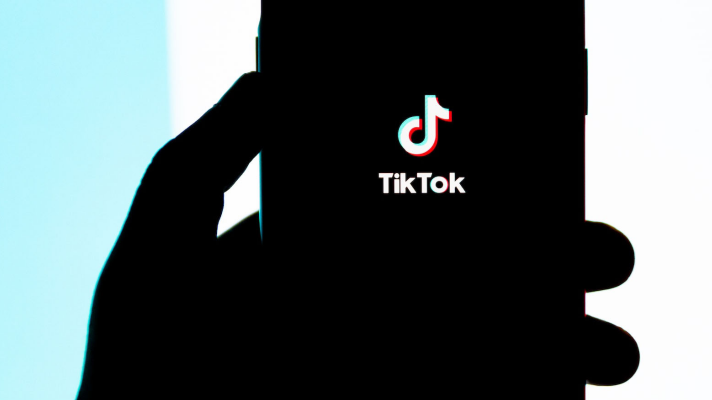TikTok, a popular social media platform, has been linked to teen mental health issues. Because users are constantly exposed to content from others who appear to have more followers, better lives and more attractive appearances, the platform’s algorithm can create a “compare and despair” mindset. Furthermore, the pressure to create and share content can result in feelings of inadequacy and low self-esteem. It’s also worth noting that social media’s constant distraction and stimulation can have a negative impact on overall mental health and well-being. Teens must strike a balance and use technology in moderation.
How did Titok become an epicenter for mental disorders?

TikTok, like other social media platforms, has the potential to breed mental disorders, particularly among teenagers. The constant pressure to create and share content and the algorithm that favors the most popular and appealing content can lead to feelings of inadequacy and low self-esteem. Furthermore, constant exposure to the curated highlight reels of other users’ lives can foster a “compare and despair” mindset, leading to feelings of depression and anxiety. Furthermore, social media’s constant distraction and stimulation can have a negative impact on overall mental health and well-being. It is critical for teenagers to maintain a healthy balance between technology and social media use. It’s also critical for parents, caregivers, and educators to talk openly with their children about the risks of social media use and to encourage healthy habits like limiting screen time and engaging in other activities.
Social Media and social contagion

The spread of emotions, behaviors, and attitudes among individuals in a group or society is referred to as social contagion. Social contagion can occur on social media platforms such as TikTok due to the spread of viral content, trending hashtags, filters, and other effects. This can spread negative emotions like fear, anxiety, and depression, as well as potentially dangerous behaviors like self-harm, eating disorders, and suicide. Furthermore, social contagion can result in the spread of misinformation and disinformation, which can have real-world consequences for individuals as well as society as a whole. Individuals must be aware of the potential risks of social contagion on social media and take precautions to protect their mental health, such as limiting their time on social media, engaging in other activities, and double-checking information before sharing it. It is also critical that social media platforms take steps to combat the spread of misinformation and harmful content.
The Addiction to Social Media Among Teens
More and more teenagers are spending too much time on social media, raising serious concerns about social media addiction. To be addicted to social media is to use these sites excessively and compulsively despite the potential negative effects on one’s psychological, emotional, and interpersonal health. Addiction to social media is on the rise among adolescents, and many factors contribute to this.
- The constant need to stay updated and connected
- The constant desire for approval and validation from others
- The simple availability of social media through smartphones and other devices
- The fear of missing out on important details or events due to a lack of in-person interpersonal interactions
Teens who use social media excessively may exhibit these symptoms:
- Checking for updates or notifications constantly
- Using social media while losing track of time.
- Inability to perform tasks or engage in activities without checking social media.
- Feeling stressed or anxious when unable to access social media.
- Due to social media use, neglecting responsibilities and important relationships.
To reduce the negative effects of social media addiction in teens, set limits on usage, balance with other activities, be mindful of content consumption, fact-check, review privacy settings, seek professional help if needed, and educate yourself about the app are all recommended. It’s critical for parents, caregivers, and educators to talk openly with their children about the risks of social media use and to encourage healthy habits like limiting screen time and engaging in other activities.
Tiktok Addiction
TikTok addiction is a type of social media addiction that refers to an individual’s excessive and compulsive use of the TikTok app despite the negative consequences it may have on their physical, mental, and social well-being. The app’s algorithm, which uses engagement metrics such as likes, comments, and shares to personalize and prioritize content for users, can contribute to this addiction, making it difficult for users to uninstall the app.
Some of the signs of TikTok addiction include:
- Scrolling through the “For You” page or other parts of the app over and over again
- You’ve been using TikTok so much that you’ve lost track of time.
- It’s hard to finish tasks or do things without checking TikTok.
- When you can’t get to TikTok, you feel anxious or stressed.
- Because of TikTok use, people are putting off their responsibilities and important relationships.
Those who are struggling with an addiction to the video-sharing app TikTok are encouraged to limit their usage of the program, diversify their interests, and get help from professionals if necessary. You should also be familiar with the app’s algorithm and how it selects content for you. Maintaining a healthy relationship with technology, including social media, requires moderation.
Why teens should stop using Tiktok
Teens may want to consider discontinuing or limiting their use of TikTok for a variety of reasons. To begin with, TikTok can be a breeding ground for mental disorders, particularly among teenagers. The constant pressure to create and share content and the algorithm that favors the most popular and appealing content can lead to feelings of inadequacy and low self-esteem.
Furthermore, constant exposure to the curated highlight reels of other users’ lives can foster a “compare and despair” mindset, leading to feelings of depression and anxiety. Second, TikTok addiction can make it difficult to complete tasks or activities without checking TikTok, cause anxiety or stress when not able to access TikTok and cause neglect of responsibilities and important relationships.
Third, there’s the issue of privacy. TikTok has been chastised for its lack of transparency in terms of how it collects and uses user data and the types of data it collects. TikTok has also been chastised for not doing enough to ensure the safety of children and teenagers on its platform. Finally, there is the issue of misinformation.
TikTok is notorious for spreading misinformation and disinformation, both of which can be harmful to the user and society as a whole. Teens should be aware of these potential risks and use the app in moderation. It’s also critical for parents, caregivers, and educators to talk openly with their children about the risks of TikTok use and to encourage healthy habits like limiting screen time and engaging in other activities.
How to Reduce TikTok’s Negative Effects
- Setting limits on use: Set limits on how much time can be spent on the app each day and stick to them.
- Balance with other things: If you spend too much time on TikTok, do things like exercise, read, hang out with friends and family, and do things you enjoy.
- Being aware of the content you’re taking in: Be aware of the content you’re taking in on TikTok and avoid content that could be upsetting or harmful.
- Fact-checking: Be skeptical of what you read on TikTok, and check facts before you share something.
- Privacy Settings: Check TikTok’s privacy settings and use the privacy features to control what information you share with the platform and with other users.
- Seek professional help: If your TikTok use is causing problems in your life or hurting your mental health, you might want to think about getting help from a professional.
- Get more information: Learn how TikTok and its algorithms work, and figure out how it chooses content for you.
To have a healthy relationship with technology, you should use social media in a balanced way. Also, it’s important to be aware of the risks and use the app sparingly.
In conclusion
TikTok is a popular social media platform that has the potential to foster mental disorders, especially among adolescents. The algorithm that prioritizes the most popular and engaging content can contribute to feelings of inadequacy and low self-esteem. In addition, constant exposure to the curated highlight reels of other users’ lives can induce a “compare and despair” mentality and lead to depressive and anxious feelings. Additionally, the constant distraction and stimulation from social media can have a negative effect on mental health and well-being as a whole. Additionally, addiction and misinformation can be detrimental to both the user and society as a whole. To minimize the negative effects of TikTok, it is suggested to set usage limits, maintain a balance with other activities, be mindful of content consumption and fact-checking, review privacy settings, seek professional assistance when necessary, and educate oneself about the app. Maintaining a healthy relationship with technology is essential by balancing your use of social media. It is also important for parents, caregivers, and educators to communicate openly with teens about the potential risks of TikTok use and to encourage healthy habits such as limiting screen time and participating in other activities.


